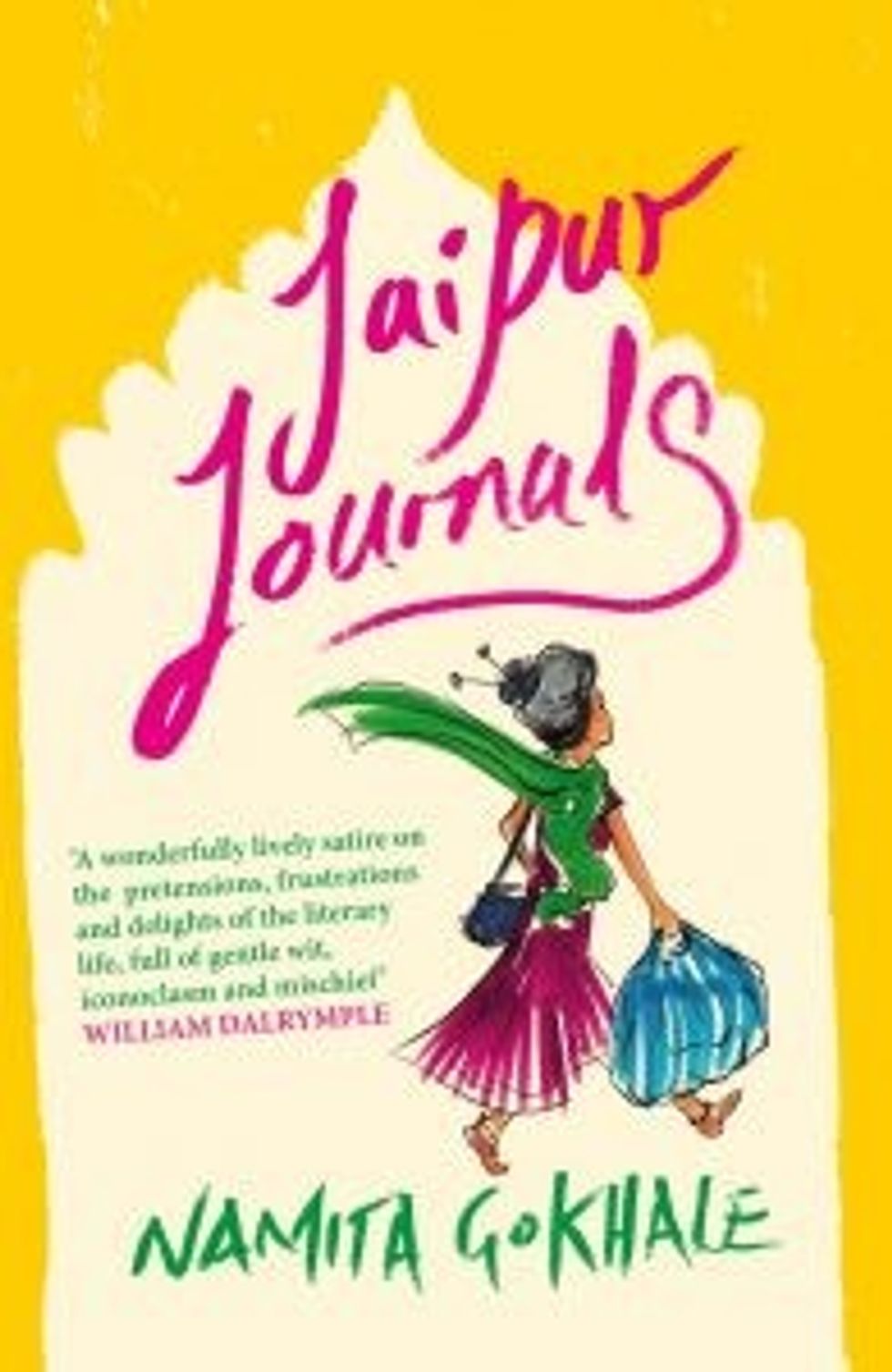NAMITA GOKHALE DISCUSSES HER NEW NOVEL AND WHAT SURPRISED HER ABOUT WRITING IT
WITH more than 20 fiction and non-fiction books to her name, award-winning writer and publisher Namita Gokhale has been connected to the beauty of words her entire life.
It was this creative passion that led her towards co-founding the world-famous Jaipur Literary Festival with acclaimed author William Dalrymple and giving a platform to writers everywhere.
In her latest book Jaipur Journals, the talented New Delhi-based writer delivers a funny and moving work set against the backdrop of the festival. The fascinating novel has multiple multi-generational characters connected to the literary world and offers diverse stories driven by a rainbow of relatable emotions.
Eastern Eye caught up with Namita Gokhale to discuss her new book, literature and what makes a great story.
What first connected you to writing?
I was always connected to books, reading and writing. I wrote some forgettable poetry and complicated short stories, but it was in 1982 when I was 26, that I found my voice. I began on my debut novel, Paro: Dreams of Passion, and knew as I was writing it that I was getting somewhere. It went on to become a cult classic in India after it was published in 1984 by Chatto & Windus.
Which of your many works is closest to your heart?
It’s difficult to say which of my novels is closest to my heart. Possibly Things To Leave Behind as it is about the Kumaon region in the Himalayas, a place I continue to think of as home.
How proud are you of the global profile and amazing work done by the Jaipur Literary festival, which you co-founded?
I am truly proud of the valuable work and global outreach of the Jaipur Literature Festival (JLF).
As a co-founder of JLF with William Dalrymple, it has been a privilege to interact with so many great writers, thinkers and artists. Our festival has given so much joy, so much nurturing, and received so much from our speakers and amazing audiences.
How much did the festival lead you to writing your new novel Jaipur Journals?
My novel Jaipur Journals is a tribute to the Jaipur Literature Festival, which has taught and given me so much.
Tell us a little about the book?
The novel has been described as ‘a love letter to the greatest literary show on earth.’ It is told from multiple perspectives, and it searches the inspirations and heartbreaks of that loneliest of tribes, the writers.
You have different stories in there, but how did you select them and how many of them are based on real life?
This is one of those rare instances where the narrative flowed on its own momentum from the very start. I did not overthink it, I just followed the stories and was often myself surprised by the twists and turns the tales took. Bits and pieces of it come from memory but no part of the novel is actually based on real life.
Which of the story strands did you enjoy most?
I was deeply engaged with the character of Rudrani Rana and still feel that I know her better than many of the people who I meet in real life. The poet/burglar Raju Srivastava ‘Betaab’ is also someone who is very close to my heart.
Who are you hoping connects with the book?
When I write a novel, I really write it for myself, to tell myself a story. I hope that it will resonate with all those who have been at JLF, physically or virtually, and that others will get a sense of our magical festival and the diverse stories it encompasses.
There must be loads more stories from the festival. Will you do a follow up?
That’s a very good question. The world has changed utterly after the pandemic, and I may look for more stories that bridge a mixed reality.
Through your writing and the festival, you have had many memorable literary encounters, but which has stood out most for you?
The most memorable encounters have been with the great writers in the Indian languages – Sunil Gangopadhyay, UR Ananthamurthy, Girish Karnad, Mahashweta Devi and SR Faruqui – who are no longer with us, and being able to talk to them about life and literature.
What do you enjoy reading and do you have a favourite book?
I enjoy reading for literary prizes as I approach the books with more focus and attention. This year, as the chair of the Dylan Thomas Prize 2021, I have had the opportunity to read carefully through the stellar longlisted and shortlisted books. I return constantly to the great Indian epic, the Mahabharata, for comfort. Muriel Spark remains high on my list of favourite writers.
According to you, what makes for a great story?
It’s difficult to say what makes for a great story. It should remain within you, become a part of you, transform you.
What can we expect next from you?
I completed a play which I had been working on since 2004, on the tragic life of the Bangla poet Michael Madhusudan Dutt. It is titled Betrayed By Hope. I also have a new novel coming out towards the end of the year. I feel drawn to writing more short stories.
What inspires you?
I am constantly inspired by other writers, by their passion and dedication, by their belief in the power of words and narrative.
Why should we pick up Jaipur Journals?
There are no ‘shoulds’ about these things. If a reader reaches out for a book, if a book reaches out to a reader, they embark on a journey together. I hope the web of stories in Jaipur Journals draws readers in, and that they explore the tales I have to tell and delight in them.
Jaipur Journals by Namita Gokhale (£9.99, HopeRoad) is set to be published on Thursday (29).

















 Heehs describes two principal approaches to biographyAMG
Heehs describes two principal approaches to biographyAMG
